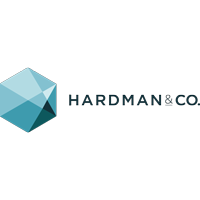 Genedrive plc (LON:GDR) is a commercial-stage company focused on point-of-care molecular diagnostics. Its Genedrive® molecular diagnostic testing platform is at the forefront of this technology, offering a rapid, low-cost, simple-to-use device with high sensitivity and specificity in infectious disease diagnosis. Rapid analysis of patient samples greatly aids clinical and public health decision-making, with field testing particularly important in emerging markets. GDR has been awarded a £550k grant from the UK’s National Institute for Health Research (NIHR) to develop a diagnostic to prevent hearing loss resulting from adverse reactions to gentamicin.
Genedrive plc (LON:GDR) is a commercial-stage company focused on point-of-care molecular diagnostics. Its Genedrive® molecular diagnostic testing platform is at the forefront of this technology, offering a rapid, low-cost, simple-to-use device with high sensitivity and specificity in infectious disease diagnosis. Rapid analysis of patient samples greatly aids clinical and public health decision-making, with field testing particularly important in emerging markets. GDR has been awarded a £550k grant from the UK’s National Institute for Health Research (NIHR) to develop a diagnostic to prevent hearing loss resulting from adverse reactions to gentamicin.
Strategy: Now that the Genedrive technology platform has received CE Marking, the new management team has completely re-focused the company onto the commercialisation pathway for diagnosis of infectious diseases, signing two important commercial agreements with Sysmex, a major global player.
Hearing loss in newborns: There is a major unmet need in developed countries to prevent the adverse reactions that occur in a small minority of patients in the course of life-saving antibiotic treatment. Reactions can be severe, and lead to irreversible and complete hearing loss. Current testing technology is too slow.
NIHR grant: As part of a collaboration with the NHS, GDR will develop a rapid diagnostic for mutations in the (human) mitochondrial gene, RNR1. It will run on the portable, point-of-care Genedrive technology device. Clinically actionable results will be available within the one hour required for treatment.
Risks: The platform technology has been de-risked through the receipt of CE Mark for its first two assays (hepatitis C and tuberculosis). The main risk is commercial, given that it often takes time for new technologies to be adopted. However, partnering with major global and local players reduces this risk.
Investment summary: Genedrive plc technology ticks all the boxes described for an ‘ideal’ in vitro diagnostic that satisfies the need for powerful molecular diagnostics outside the hospital setting. The hepatitis C market is a global opportunity, which is very large, even in developing countries. With strong partners being signed for different countries, such as the NHS in the UK, and evidence of early sales traction, there is, in our opinion, a valuation anomaly existing.






































